Today I'll talk with you about the tanpatsu "Akechi Mitsuhide - The Man God Hated" aired on Fuji TV on 2007, centered around the man who entered the history books because he killed Oda Nobunaga, his very own Lord.

The director is Nishitani Hiroshi, that from what I get from his curriculum is specialized on police procedural movies and comedy TV series, while the script is by Sogo Masashi, who made a name of himself because he took care of the scripts of a good number of anime.
The movie starts, unexpectedly, with a scene from the Siege of Osaka, where Hiroko (played by Nagasawa Masami), Mitsuhide's wife (me and Barbara got very confused here, as the Siege of Osaka is associated to Gracia, Mitsuhide's daughter, not his wife), while facing danger, remembers of her husband and wonders about the destiny of people-- Here we have our time jump, and the action gets back in Kyoto, 1568: Nobunaga's troops enter the Capital to enthrone Yoshiaki as the new shogun. Mitsuhide (played by Karasawa Toshiaki) welcomes his lord to Kyoto, but the scene is promptly stolen by Hideyoshi:
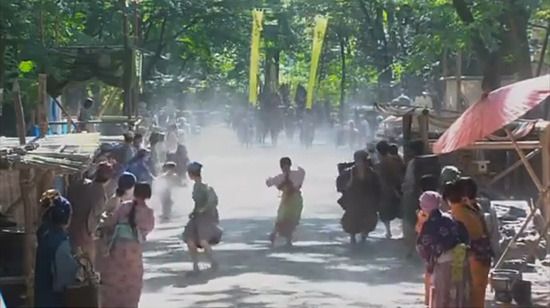
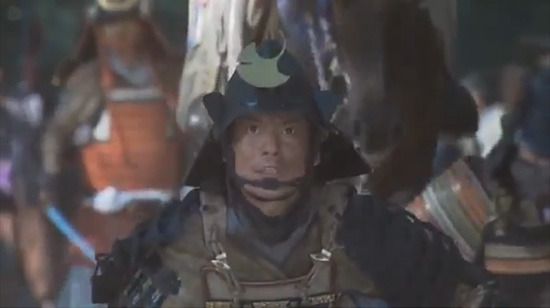
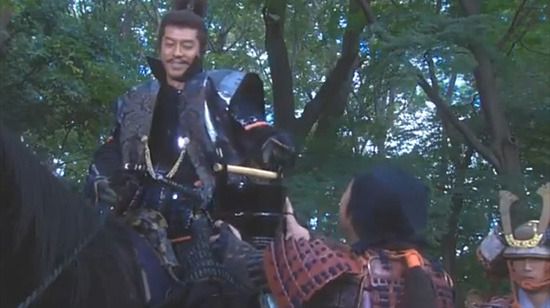
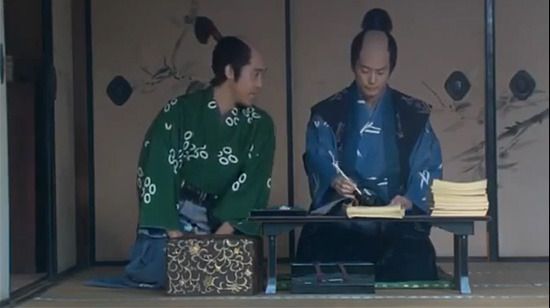
The vibe of the "clerk" compared to that of rude warriors of the Nobunaga's circle is quite striking, and it shows perfectly in the scenes where the other vassals laugh at the random jokes of their lord, jokes that leave Mitsuhide quite perplexed (expecially when his head is compared to a kumquat):
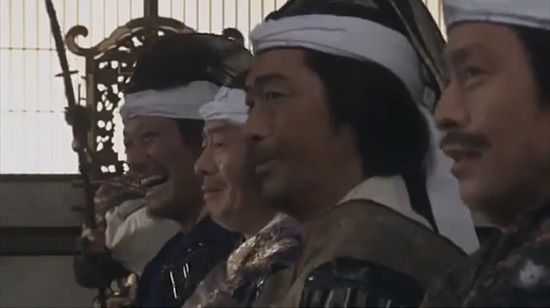
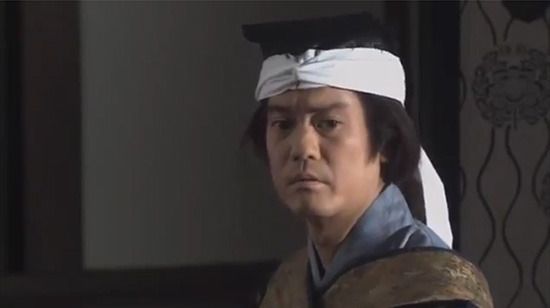
Mitsuhide refuses promptly and, out of mere sadism, Nobunaga forced him to obey and to face the consequences of this cruel act.
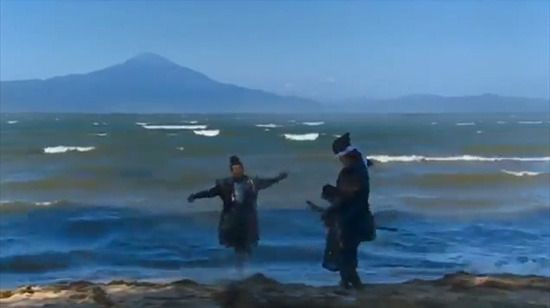
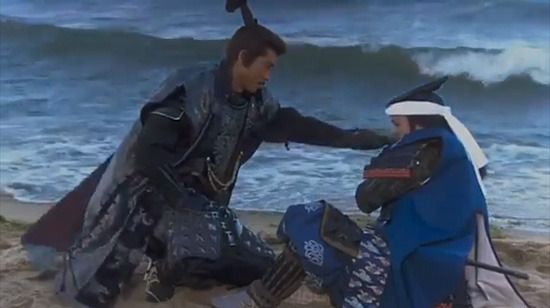
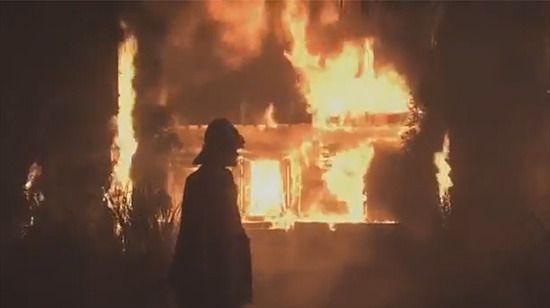
It's a long way to gain the loyalty of the people of Omi again, but in the end, offering to help and assist them, things seem to get well for our troubled bushi:
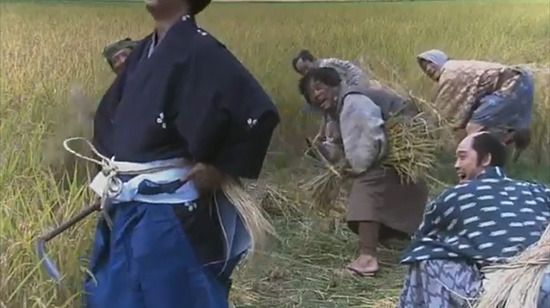
Anyway, Mitsuhide is showing to have a good time as the tastes of his lord gets weirder and weirder because of the Jesuits' influence, and the apex of drama is shown on 1582, when Nobunaga is celebrating the victory over the Takeda: Mitsuhide says the wrong thing at the wrong time (as usual), and the result is a beating from Nobunaga (in pure kabuki story style, with even a kick to Mitsuhide's food!)--
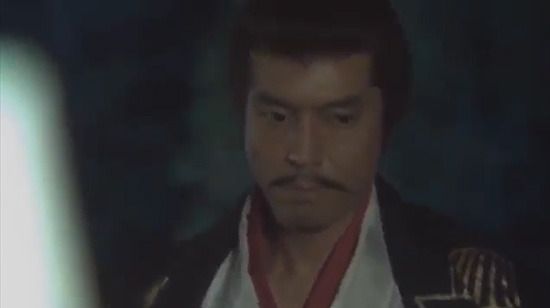
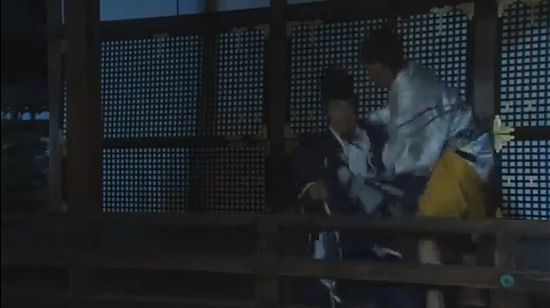
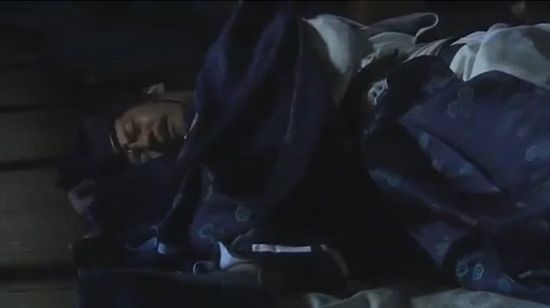
Both the Incident of Honnoji and the Battle of Yamazaki are interpreted in a very dramatized way, that in my opinion looked quite improbable. Both Nobunaga and Hideyoshi face Mitsuhide, the first, leaving some mysterious prophecy behind, the second, in a western-like duel that looked completely out of place--
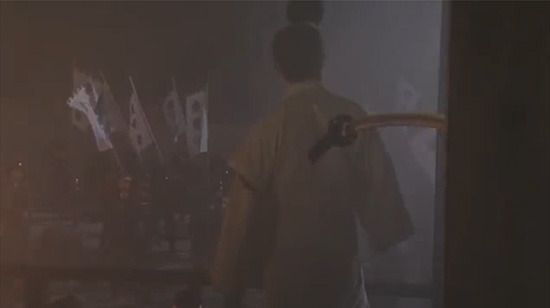
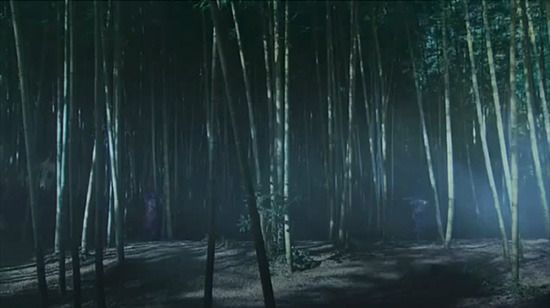
But let's focus on the interesting stuff, that in our case is the portrayal of Nobunaga.
The actor is Kaminawa Takaya, a guy with a nice curriculum, who already had some experience with the jidaigeki genre: before impersonating Nobunaga here, he played as Mori Takamoto in the taiga drama dedicated to "Mori Motonari" (1997) and he was given the leading role of Yamauchi Kazutoyo in "Koumyou ga Tsuji" (2006), passing through a tv movie dedicated to "Miyamoto Musashi" (2001), where again he was given the leading role. It's interesting to note that Nagasawa Masami also played in the same taiga drama of 2006, in the role of Korin, as did Karasawa Toshiaki who played as Maeda Toshiie .
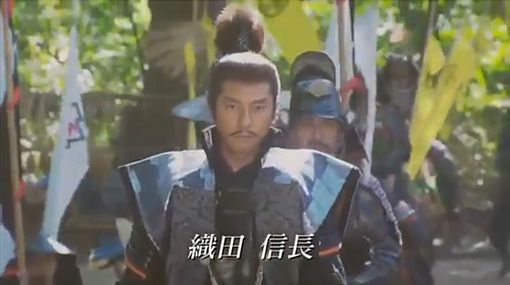
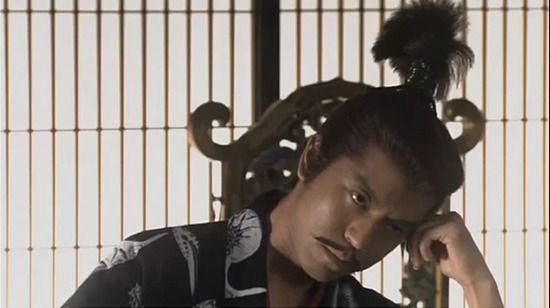
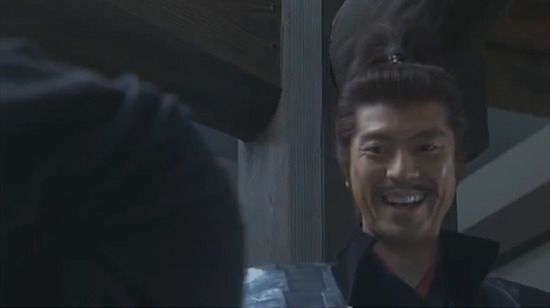
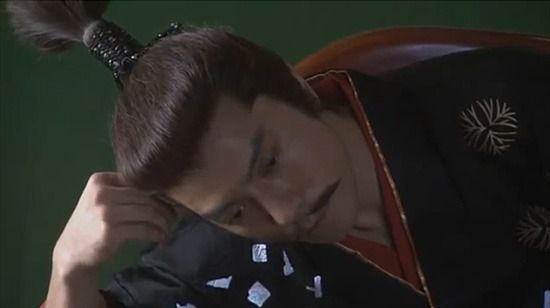
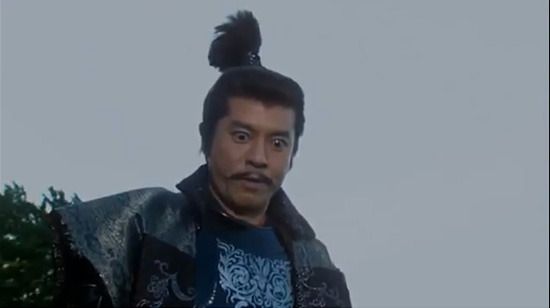
Again, compare this portrayal to that of the Nobunaga from "Tokugawa Ieyasu", and you face two different impressions on a strong leadership, changing with the changing times.
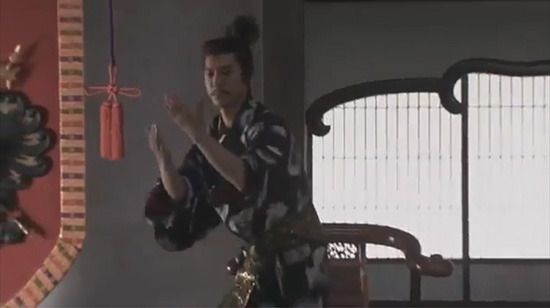
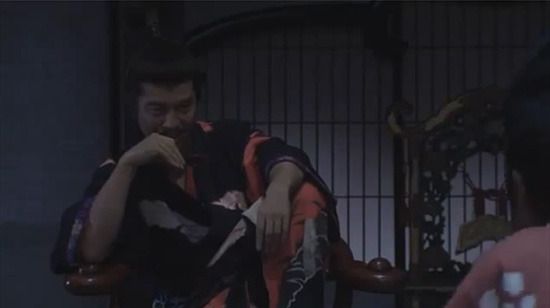
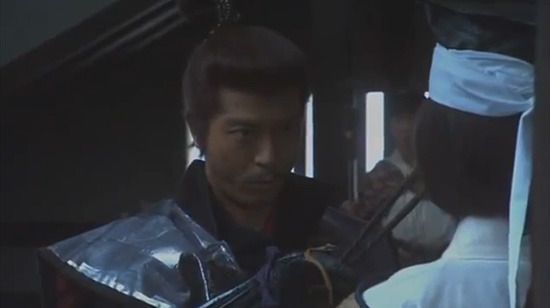
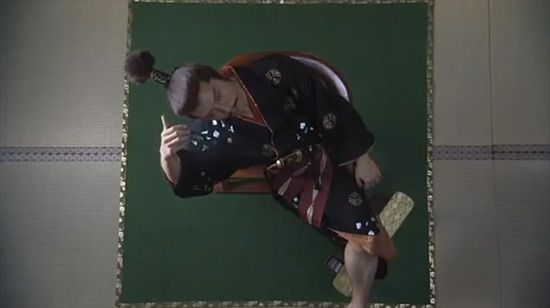
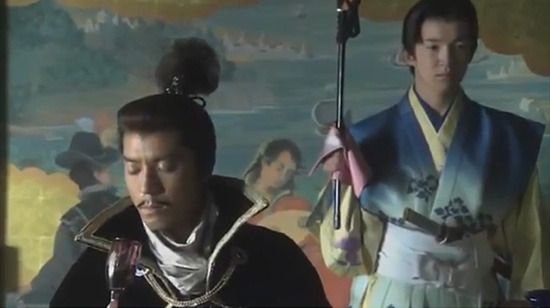
The scene where he gives Mitsuhide some serious beating was peculiar in this sense: for the first time in my life I've seen a drunken Nobunaga, completely alienated from his men because of the violence.
But this Nobu is not just nonsensical evil, he shows some depth, even if completely random and incomprehensible-- It must be in an attempt to make us feel the same "dismay" of his vassals, dealing with a man with a vision that they can't quite grasp.
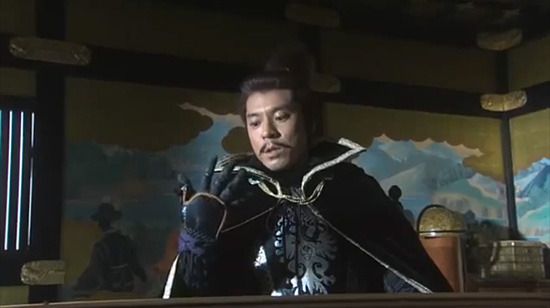
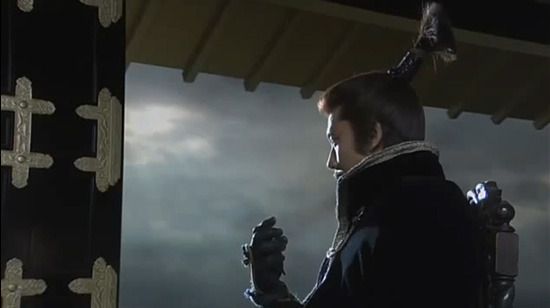
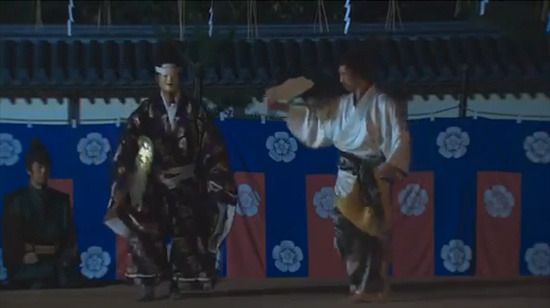
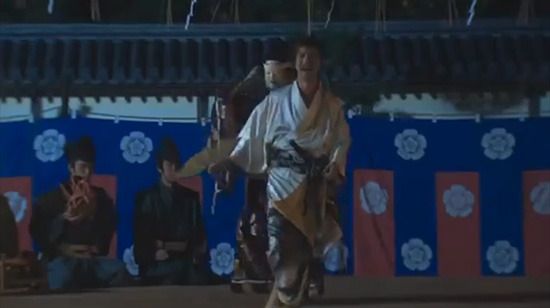
Some "peculiarities" of this movie are the "face-off" with Mitsuhide, that never happened in reality, and the moving scene of Nobunaga looking at the corpse of Ranmaru, the boy who promised to travel with him around the world once peace was achieved--
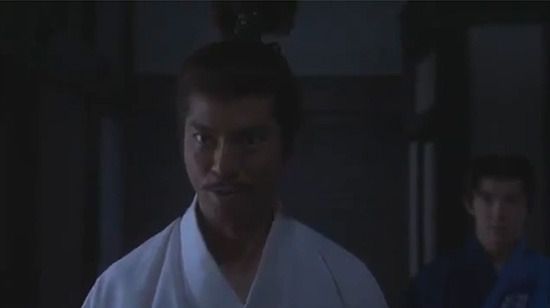
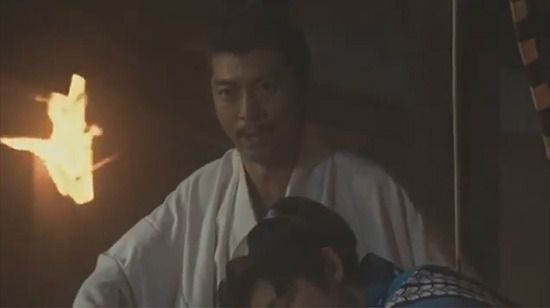
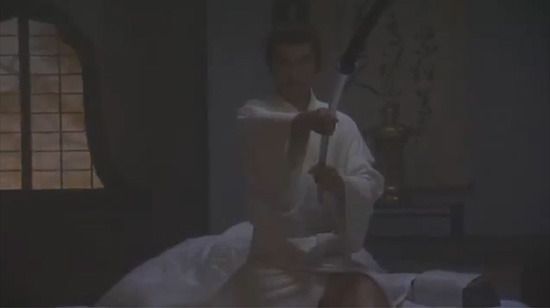
This Nobunaga is "hermetic" 'til his final moments, but despite the stereotypes he leaves a strong impression.
Now a few words on the rest of the cast--
Mitsuhide was played by Karasawa Toshiaki (he played as Toshiie in the taiga drama "Toshiie to Matsu", besides the one of the above mentioned "Koumyou ga Tsuji"to give you an idea), and he did a good job. Mitsuhide in this movie is loyal, dutiful, serious, and if this is the image that the director wanted to suggest us, the actor complied perfectly. Mitsuhide is the sample of the "hard-working" samurai with a penchant for being misunderstood, it's a bit of his stereotype, and this portrayal works well, if compared to the "randomness" of Nobunaga and the "resourcefulness" of Hideyoshi.
The star of the movie is, notwithstanding Mitsuhide, Hideyoshi, played by Yanagiba Toshiro.
His role is pretty much that of a comc relief and at a certain point he starts to get really on your nerves for how frequently he pops up (as in the scene of Mitsuhide doing farming job), but it's true that whatever he does you couldn't help smiling or feeling refreshed-- Pretty much what he does to Nobunaga!
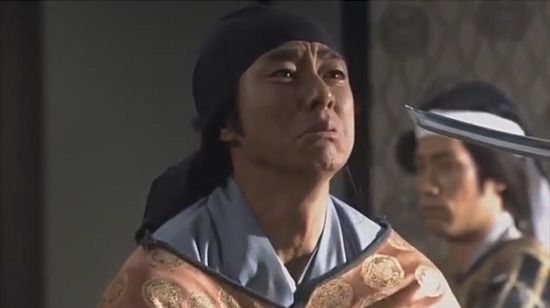
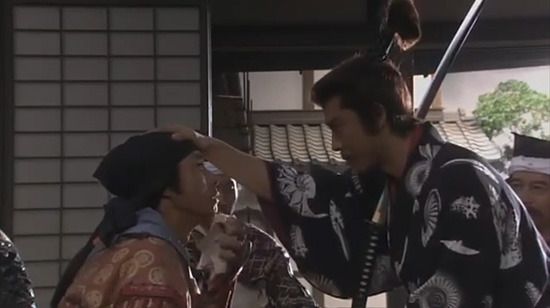
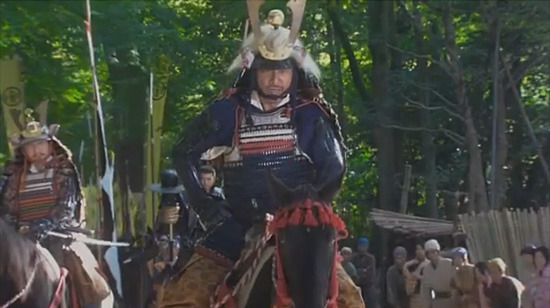
Final mentions, a few words on the cute cute Ranmaru, here played by Asari Yosuke.
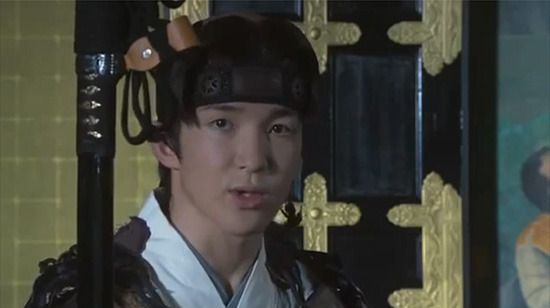
Besides, the curriculum of this guy is quite impressive. I counted a good amount of jidaigeki and taiga drama roles, among which those that gave me an impression are the role of Oyamada Nobuari in "Fuurin Kazan" (2007) and the one of Yanagisawa Yoshisato in "Genroku Ryoran " (1999).
It's fun to see him again with Karasawa-san, Kaminawa-san and Masami-san in the above mentioned "Komyo ga Tsuji" (2006)!
And a spotlight on my favourite female character from this movie, the energic Nene, played by Konishi Manami:
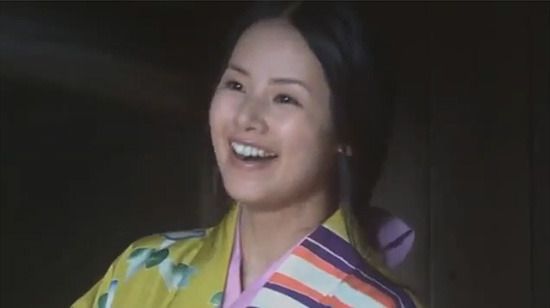
Eeeeh, those Japanese waifu∼!
In the end, a movie with flaws, but a nice movie indeed.
As mentioned by Les on his short review, it may be a bit frustrating that the whole biography of Mitsuhide is just squeezed to the years of his services to Nobunaga, but the whole thing must be interpreted as in the usual tones of "the right person at the right moment", and despite being presented as his nemesis, Mitsuhide was the other face of Nobunaga's rule, functional to his presence--
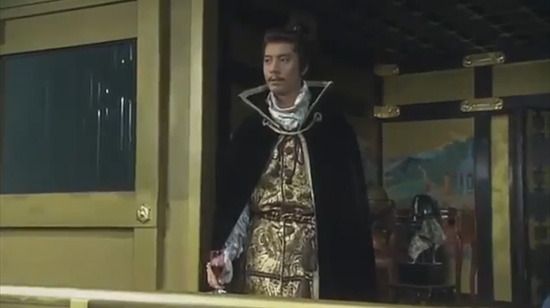
... I own this movie for years and I still haven't watched it until now. Nobu's portrayal sound interesting. Usually when I see Nobu, even in his "utsuke" days he still have some seriousness in him. And people finding him "weird" seems to be meant as their own misunderstanding.
ReplyDeleteSo a very wild Nobu? Something worth looking at.
He's not really "wild", the Nobunaga of Ken Watanabe was wild, here he's pretty much a sociopathic XD
DeleteAnd here's Alex once again ... That's extremely interesting to me that Ryu Daisuke played Shibata Katsuie, because he's the actor who played Nobunaga in "Kagemusha" back in 1980. Funny to think of a lot of these folks who must presumably have been in so many jidai geki over the course of their careers; it must be an interesting sort of deja vu type feeling, playing one character and then playing a different character who's interacting with the one they played previously.
ReplyDelete